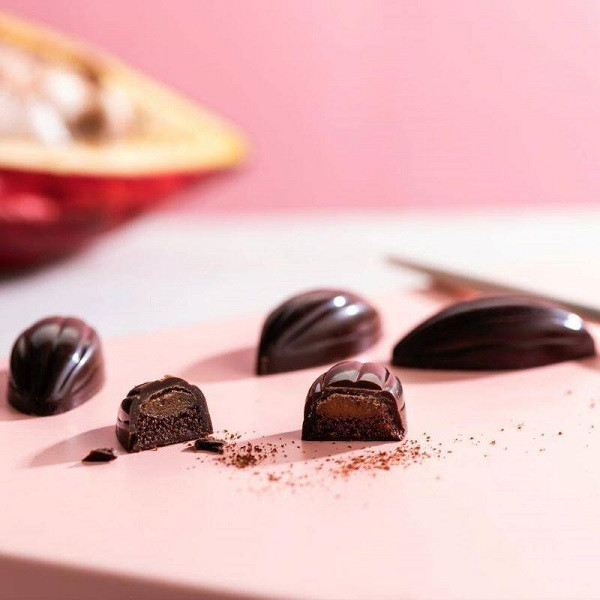✕

Column: industry Tag: chocolate,volumes,strategic milestones Published: 2023-04-06 10:38 Source: www.foodingredientsfirst.com Author: Marc Cervera
The chocolate and cocoa giant has appointed Peter Feld as its new chief executive after its current CEO, Peter Boone, steps down due to personal reasons. It has also lowered sales volume guidance as consumers cut back on purchases due to inflation.

The company’s board of directors has appointed Feld with immediate effect. Boone has led Barry Callebaut since September 2021.
In the last six months, Barry Callebaut reported sales volume of 1,130,742 tons in the first six months of fiscal year 2022/23 (ended February 28, 2023). This is down 2.9% from last year.
However, the company’s sales revenue is up 7.9%, its gross profit 11.4% and its net profit 10.4%.
Barry Callebaut offset the higher raw material prices – cocoa being on average 11.3% more expensive compared to last year – and the inflationary environment through higher prices “for the majority of its businesses” and through product reformulation.
While general sales volume declined, the company achieved a turnaround in the EMEA market, which encompasses almost half of its sales volume. After an 8.5% volume decline in the last quarter, the company achieved to bring sales to positive territory at 1.8%.
Slightly declining volumes, Europe outperforms
Barry Callebaut’s sales volume was down 0.5% in the last three months, limiting the sales decline to -2.9% for the first half of the fiscal year. Barry Callebaut achieved a volume performance generally in line with the global chocolate confectionery market; nonetheless, the company expected a better quarter.
Ben De Schryver, CFO of Barry Callebaut, explains that “against a high comparator,” the business witnessed progressive volume recovery, “albeit slower than expected.”
“This was due to the temporarily limited availability of our global brands and weaker than expected customer demand in an inflationary environment,” he notes.
“Food Manufacturers volume further recovered in the second quarter across the region in a challenging market environment,” highlights the company.
This is above the CAGR of the European market of 1.4% between 2018 and the end of 2022, according to Innova Market Insights data. Furthermore, Barry Callebaut achieved profitability (profit up 10.3%) in the EMEA region despite an 83.4% increase in sugar prices in Europe.
Mixed volume elsewhere
The company experienced “weaker than expected customer demand” in Region Americas.
While the general sales CAGR in Latin America amounted to 0.5% between 2018 and 2022 and 1% in North America (2020 to 2021), according to Innova Market Insights, Barry Callebaut’s sales volume declined by 4.4% in the last six months.
The company’s sales volume in Asia Pacific remained flat “due to the inflationary impact on volume in Indonesia and Japan and a weakening demand in particular in the bakery and biscuit segment.”
Barry Callebaut underperformed when compared to the general market growth of 6.4% between 2018 and 2022 in the region, according to the market researcher. Different confectionery foodstuffs.

Barry Callebaut’s sales volume was down 0.5% in the last three months.
In the rest of regions, volume remained flat for the last six months and grew 2.6% in the quarter that just ended.
Strategic milestones
The company ushered a new era of innovation by revealing its second-generation chocolate in Venice in October. The company reinvented chocolate production from farm to roasting, which honors the “mindful consumption” movement where consumers want to indulge in chocolate that is clean label, has less sugar, is sustainably produced and factors in provenance.
Last month, Barry Callebaut’s second-generation chocolate was recognized as a finalist in four World Food Innovation Awards categories at the 2023 International Food & Drink Event in London.
In December, the business announced it is expanding its Chatham factory in Ontario, Canada. Over the next few years, the expansion will provide a US$100m investment into various elements of the factory, intending to increase the factory’s dairy-free production capabilities.
Also in March, In a long-term agreement, Barry Callebaut and Nestlé announced the plan to roll out 11,500 hectares of agroforestry, including payments for ecosystem services, in an effort that will protect biodiversity and support the livelihoods of over 6,000 cocoa farmers in the West African nation.
Previous:Insempra unveils natural violet and raspberry fragrance and flavor agent crafted by fermentation
Next:Sustainable chocolate: Upcycling cacaofruit, combating waste and leveraging fermentation for Easter eggs
Hot key words
Hot Products
Popular Vendors